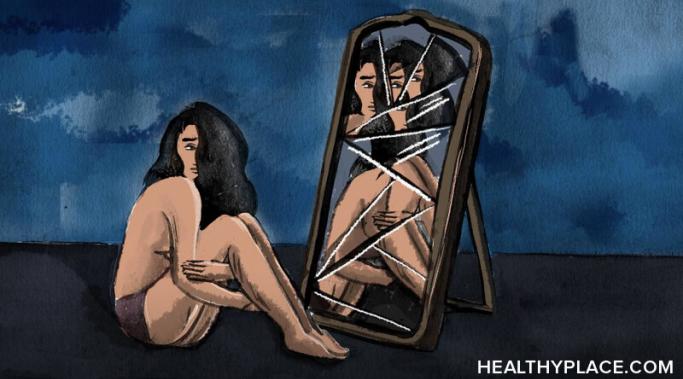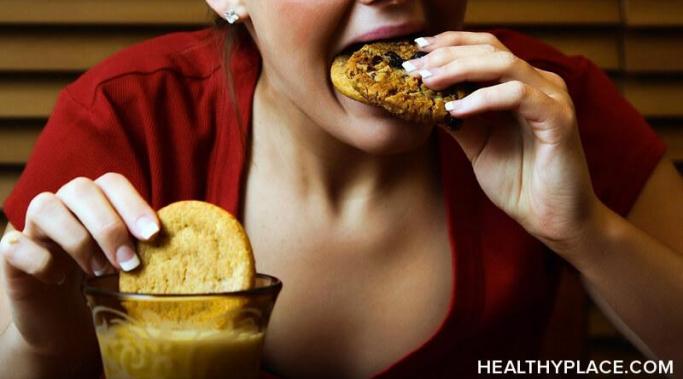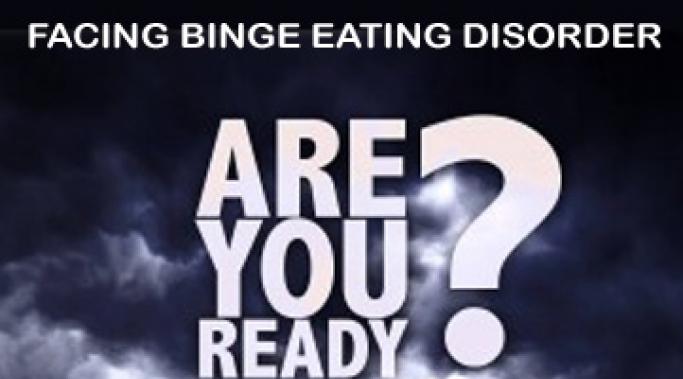Binge eating became a coping mechanism during my breakup. Recognizing this destructive pattern and taking steps to manage it was crucial for my wellbeing. Here's how I managed my binge eating during my breakup.
Binge Eating Diagnosis
Maybe you've known for a while that your binge eating disorder (BED) is out of control. Starting BED recovery can be confusing, and the steps you need to take are difficult to navigate on your own. When you're struggling to make it through each day without bingeing, it's difficult to create a fresh perspective. So how do you begin to recover from binge eating?
Is there a difference between overeating and binge eating? During my eating disorder recovery, I didn't know anyone else who was openly struggling with binge eating or overeating, so I didn't know which category I fit under. Now I know I've experienced both overeating (as most people have) and binge eating. The labels might seem arbitrary, but there are distinctions between overeating and binge eating.
Binge eating disorder development happens so slowly that often times we wonder how exactly our lives got to their current state. I always felt as though my eating disorder appeared out of nowhere, like it just showed up one day without any warning. Truth is that eating disorders are progressive illnesses. They do not just magically appear one day when we wake up. This disease goes through many phases before it takes us over, usually going unnoticed until it is making our lives miserable. If we understand binge eating disorder development in our recovery, we can keep the illness from showing up again.
Are you ready to deal with binge eating disorder (BED)? You're learning more about it, and you have the symptoms of BED, but are you ready to deal with BED? When you have an eating disorder, coming to terms with the very fact it exists can be extremely difficult. You can be fully aware you have a problem but be unprepared for taking steps to deal with it in a practical way. You may not be ready to deal with binge eating disorder.
When you're first told you have binge eating disorder it can be very scary, but getting your binge eating diagnosis can be a good thing. Once you're diagnosed you can get help and support for your disorder. It also affirms that the way you eat and the feelings you get from eating are not average and you don't have to continue to suffer. A binge eating diagnosis is not the ending of your story. It's just the beginning and a binge eating disorder diagnosis can be a good thing.
Someone recently asked me what the low point was of my binge eating disorder. Why did I seek help for a problem that I had had for years? What was the final straw? Immediately, I knew exactly what it was. Here is the low point of my binge eating disorder.
My story of how I was finally diagnosed with binge eating disorder is a strange one. I had no idea I actually had a medical problem. After a lifetime of being raised on ideas that eating was easily controlled through willpower and your weight was a simple problem that the next fad diet could fix, I was inclined to think that my problems with food were down to my own lack of self-control. Receiving my binge eating disorder diagnosis was a complete shock.







